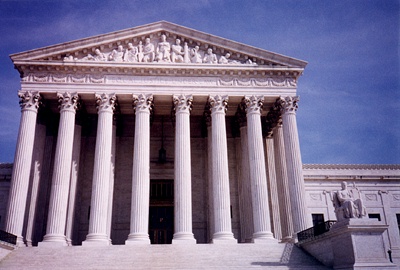All Nonfiction
- Bullying
- Books
- Academic
- Author Interviews
- Celebrity interviews
- College Articles
- College Essays
- Educator of the Year
- Heroes
- Interviews
- Memoir
- Personal Experience
- Sports
- Travel & Culture
All Opinions
- Bullying
- Current Events / Politics
- Discrimination
- Drugs / Alcohol / Smoking
- Entertainment / Celebrities
- Environment
- Love / Relationships
- Movies / Music / TV
- Pop Culture / Trends
- School / College
- Social Issues / Civics
- Spirituality / Religion
- Sports / Hobbies
All Hot Topics
- Bullying
- Community Service
- Environment
- Health
- Letters to the Editor
- Pride & Prejudice
- What Matters
- Back
Summer Guide
- Program Links
- Program Reviews
- Back
College Guide
- College Links
- College Reviews
- College Essays
- College Articles
- Back
Arguments of Anti-Federalists
When the Constitution was written, people with different opinions toward it soon divided into two groups: Federalists and Anti-Federalists. Whereas the Federalist advocated the legitimacy of the Constitution, the Anti-Federalists hold a negative attitude toward it. Eventually, at the request of the Anti-Federalists, the Bill of Rights was added to the Constitution to limit the power of the national government.
First of all, the Anti-Federalists consider the creation of the Constitution and the replacement of the Articles of Confederation as illegal. When the delegates wrote the Constitution in Philadelphia, they actually violated the Articles of Confederation, because it required thirteen out of thirteen states to make a universal agreement to change the Articles of Confederation. What the delegates did was not only amending the Articles of Confederation, but also, even worse, making up a completely new constitution to replace it. The Anti-Federalists’ concern was indeed reasonable. If there was an instance as serious as replacing the Constitution with a completely new one happened, there would be a much higher possibility that a similar event would happen in the future. If the Constitution can be amended so easily, a nation would lose its own value and potentially become chaotic. Therefore, a carefully attempt should be taken according to the Anti-Federalists.
Secondly, the Anti-Federalists argued that the federal government should not obtain too much power. The potency of the central government will take away people’s liberty. A strong piece of example is that the power to tax of the national government. Civilians earn their income through their own efforts, and the government should not have the right to regulate or to tax them. Therefore, the public should not show confidence in the newly-established central government, in order to protect their own rights. This is especially true for small states and minority groups of people that are underrepresented, meaning that rural inhabitants and farmers have a higher possibility of being deprived of rights by the government that had been overly granted power. On the contrary, people in areas where they could be better represented or people who were in a higher social class can demonstrate their interest in the government and gain satisfying responses. This inequality had been a strong base of Anti-Federalists’ argument. Thus, since each state has various situations, each of them should specify the plans for each of them respectively. In that way, more people’s demand will be recognized and answered.
In July 2018, President Trump was going to grant a tax cut mainly to wealthy people, according to the New York Times. In this case, the Anti-Federalist will surely go against this proposal. To start with, the Anti-Federalists would be deeply worried about the power of the federal government to directly tax the people. Taxation power would be seen as infringement upon states’ rights. Secondly, people who are relatively less wealthy will have their rights being taken away, which is something that the Anti-Federalists sturdily disagree with.
The Anti-Federalist has clearly stated that the Constitution is granted with too much power that would jeopardize the rights of the people. The central government is represented by those who are more wealthy and those who have more political power. In addition, changing the Constitution is also illegal, which certainly should be avoided. Through a hypothesized Anti-Federalists’ viewpoint toward a tax cut for wealthy people, the Anti-Federalists’ ideas are better demonstrated.

Similar Articles
JOIN THE DISCUSSION
This article has 0 comments.

This essay analyzes the arguments of the anti-federalists. Based an issue in national government today, it explains what an Anti-Federalist's position would be